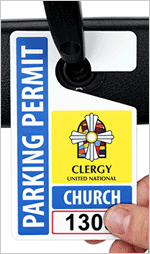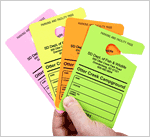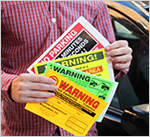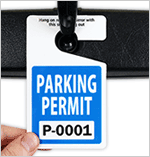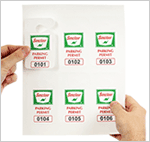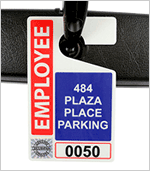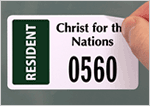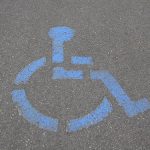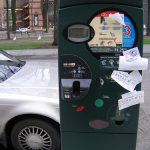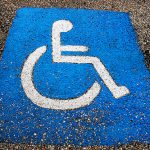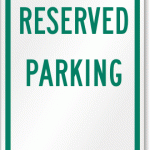The case for free metered parking for the disabled
In Washington, state lawmakers are debating whether holders of disabled parking passes should continue to receive free parking. The same question was posed recently in Portland, OR, where the city council opted to end free parking for motorists who don’t require wheelchairs. In Chicago, disabled parking placard-holders began paying for parking this month, with only those who use a wheelchair, can’t walk 20 feet, or have lost motor control in both hands exempt from the regulation.

Charging people with disabilities for metered parking is often thought to prevent fraud – but is that true, and is it fair? From Joe Wolf.
The changes are part of a nationwide trend that finds local governments cracking down on the fraudulent use of disabled parking placards because of the funds they drain from public coffers. In 2009, for example, officials in Oakland, CA, estimated that the city loses at least $150,000 annually to such abuse, while Portland estimated it lost $2.4 million in revenue in 2012.
Chicago may be the biggest loser of all: In 2013, it agreed to pay a private company that leases the city’s parking meters $54.9 million for revenue the business lost to disabled parking — formerly free in the Windy City — over a two-year period.
But Chicago’s heartache stems primarily from policymakers’ much reviled decision to auction public assets to a private firm. The 75-year deal they made allows Chicago Parking Meter LLC to increase prices as it pleases; meter rates in Chicago are now the highest in country.
Who really pays?
But should the disabled pay the price for poor processes and decisions made by local governments? To be sure, abuse among disabled parking placard-holders exists. Anecdotal evidence abounds of motorists seen rushing into stores after parking in handicapped spots, and while some may be frauds, it’s impossible to know by sight because some disabilities, like respiratory or neurological issues, aren’t visible to the naked eye.
Hard numbers are a better indicator of abuse. In California, for instance, the increase in the number of disabled parking permits—more than 100 percent in the past decade for the Bay area alone—far exceeds the growth of the overall population, which has risen just 5 percent. And, in the United States overall, approximately 8 percent of the population—roughly one in 12 of those aged 18-64—report a work limitation or disability.
In addition, the number of veterans filing disability claims is climbing at an alarming rate, suggesting that vets are a growing number of the disabled. “Should they pay if they are military, ex-military?” asked Washingtonian John Torpey when considering banning free parking for the disabled. “No, they paid their price.”
But how would enforcement officials distinguish a veteran with a disabled parking placard from any other disabled motorist? And would such a distinction be fair—that some disabilities or identities are somehow more deserving of public subsidy than others?
Processes and penalties
Such questions hinge on procedure and enforcement, the areas that make disabled parking-placard fraud so permissible. For example, while there are procedural variations among the states, all require a medical professional to certify an application for a placard, but none verify the signee. That means a dermatologist may be the one signing, and according to Dr. Ali Moiin, a Michigan dermatologist, “No skin condition should need any handicapped permit.”
Moiin has told the press that he receives permit requests once a month, a situation that’s easy to imagine replicated across the country, which Washington state representative Darren Jernigan recognizes. Doctors have to be “accountable for what they’re doing,” he says. “They’re passing out placards like Aspirin.”
The problem is underscored by the fact that many states fail to track how often any particular medical professional signs an application—perhaps there are a dozen physicians responsible for certifying more than 500 applications, which should raise a red flag—and some states allow placard renewal by mail without recertification. Applicants often also pay no fee for the placard, perhaps one subsidy that can quietly die. If the disabled continue to receive free parking, a one-time fee for a placard may be a small price to pay for untold hours of free, metered parking.
Procedural weaknesses aside, placard design makes enforcement difficult. While many display a permit number, few, if any, directly feature the driver’s name, and only Massachusetts and South Carolina require or allow a photo ID to be printed directly on the placard. It would be easier to verify a placard-holder’s identity if enforcement officials could check it against a driver’s license or other identification, making it that much harder for would-be cheaters to use the placards of dead relatives or to fabricate counterfeit placards. Cities and states could also explore technological solutions—maybe placards could feature embedded microchips that police could scan to get information about the permit or driver.
Why free, metered parking exists for the disabled
Revising procedures and improving enforcement requires more time and investment from state and local governments than asking disabled parking-placard holders to begin paying for parking. That regulatory change means governments avoid the hard work of creating procedural and enforcement systems that benefit the truly disabled. Instead, because the infrastructure is already there—meters were installed years ago—it’s easier to revise regulations that assist those who need the support most.
Compare, for example, poverty rates between the poor and the disabled. In 2011, the last year such statistics were available, approximately 27.8 of non-institutionalized persons aged 21-64 with a disability lived below the poverty line, while the overall poverty rate in the country stood at 15 percent. There is, then, a distinct correlation between being disabled and being poor.
And then there are the very real physical challenges that disabilities pose. Says Dr. Carrie Standahl, an artist and professor at the University of Illinois who suffers from an orthopedic disability, in SocialistWorker.org:
If I’m going to go to class, I am going to have to plan every step of the way to get to my destination to be on time. I’ve been with friends who are non-disabled, and they will leave 15 minutes before, and I will leave an hour before. “Crip time” can describe always having to anticipate how much distance you will have to cover because you have to budget your stamina and pain tolerance.
Being able to park close to the intended destination and not having to worry about feeding the meter benefits the truly disabled. Is it fair to penalize them rather than improve procedural and enforcement systems that allow the truly disabled to receive free, metered parking while making it more difficult for frauds to succeed with fake placards?
Related Posts
Category: Enforcement, Handicapped parking, Municipal

